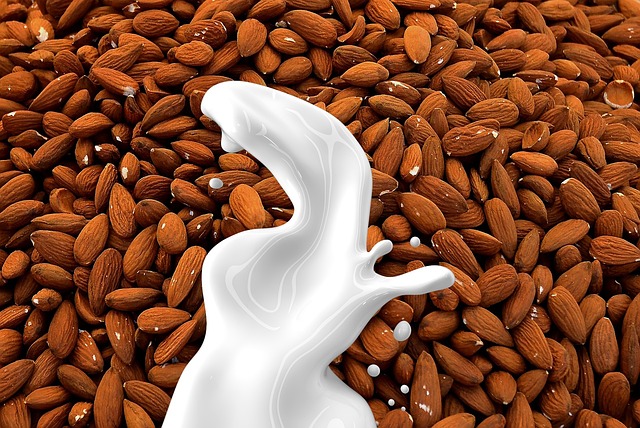Over the last few years, plant-based diets have gained immense popularity, with more people adopting a plant-based lifestyle than ever before. One of the main components of a plant-based diet is the replacement of animal-based products with plant-based alternatives, including dairy.
There is no doubt that the consumption of animal-based products has a significant environmental impact and can be harmful to our health if consumed in excess. Plant-based dairy alternatives are a great way to reduce our impact on the environment and promote better health. In this article, we will explore the benefits of plant-based dairy alternatives and how to choose the best one for you.
What Are Plant-Based Dairy Alternatives?
Plant-based dairy alternatives are products made from plants that mimic the taste and texture of traditional dairy products, such as milk, cheese, and yogurt. These alternatives are typically made from soy, almonds, cashews, coconut, oats, or rice, among other plants.
Plant-based dairy alternatives have become increasingly popular in recent years due to their perceived health benefits and the growing concern about animal welfare and environmental sustainability. They are also a great alternative for those who are lactose intolerant or have a dairy allergy.
Are Plant-Based Dairy Alternatives Healthy?
Plant-based dairy alternatives can be healthy, but it depends on the product. Some plant-based alternatives may be highly processed and contain added sugars, flavorings, and other additives, which can negate their health benefits.
However, many plant-based dairy alternatives are fortified with vitamins and minerals, making them an excellent source of nutrients for those on a plant-based diet. For example, soy milk is an excellent source of protein, calcium, and vitamin D.
When selecting a plant-based dairy alternative, it is essential to read the label carefully to ensure that it is a healthy option. Look for products that are low in sugar, contain no artificial ingredients, and are fortified with essential vitamins and minerals.
How to Choose the Best Plant-Based Dairy Alternative
When it comes to selecting the best plant-based dairy alternative, there are several factors to consider.
Nutrient Content
Plant-based dairy alternatives vary in their nutrient content. Some products are fortified with essential vitamins and minerals, while others may be lacking in nutrients. Look for products that are fortified with calcium, vitamin D, and vitamin B12, as these are essential nutrients that may be lacking in a plant-based diet.
Sugar Content
Many plant-based dairy alternatives contain added sugars, which can be detrimental to overall health when consumed in excess. Look for products that are low in sugar or contain no added sugars.
Fat Content
Some plant-based dairy alternatives may be high in fat, particularly those made from nuts, coconut, or oats. While these fats can be healthy, it is essential to consume them in moderation. Look for products that are low in saturated fat and high in unsaturated fats, such as omega-3 fatty acids.
Taste and Texture
Taste and texture are subjective and depend on personal preference. It may take some trial and error to find the plant-based dairy alternative that works best for you. Try different brands and flavors to determine which product you prefer.
Types of Plant-Based Dairy Alternatives
Soy Milk: Soy milk is one of the most popular plant-based dairy alternatives and is an excellent source of protein, calcium, and vitamin D. It has a creamy texture and can be used in place of dairy milk in most recipes.
Almond Milk: Almond milk is a popular plant-based dairy alternative and is low in calories and fat. However, it is not a significant source of protein and may be lacking in essential nutrients unless fortified.
Coconut Milk: Coconut milk is a popular dairy alternative for those who follow a plant-based diet and is rich in healthy fats. It has a creamy texture and a slightly sweet taste, making it a great addition to smoothies, curries, and desserts. However, coconut milk is also high in saturated fat and should be consumed in moderation.
Oat Milk: Oat milk has gained popularity in recent years due to its creamy texture and mild taste. It is low in fat and calories and is often fortified with essential vitamins and minerals, making it a great option for those on a plant-based diet.
Cashew Milk: Cashew milk is a creamy and slightly sweet plant-based dairy alternative that is a good source of healthy fats and essential minerals such as magnesium, phosphorus, and zinc. However, it is low in protein and may not be the best option for those who need to increase their protein intake.
Rice Milk: Rice milk is a mild and slightly sweet plant-based dairy alternative that is low in fat and calories. However, it is also low in protein and may not be the best option for those who need to increase their protein intake.
Conclusion
Overall, plant-based dairy alternatives can be a great addition to a healthy and balanced diet. They provide a range of essential vitamins and minerals while reducing the environmental impact of animal-based products. Whether you choose soy, almond, coconut, oat, cashew, or rice milk, there are plenty of options available to suit your tastes and nutritional needs. Experiment with different brands and flavors to determine which product works best for you.
Image by Lisa Redfern from Pixabay
Diet
-

Can Arthritis Sufferers Benefit From A Gluten-Free Diet?
The relationship between diet and health has led to increased interest in dietary interventions for various medical conditions, including arthritis. One such approach is adopting a gluten-free diet, which involves eliminating gluten-containing foods. This article explores whether going gluten-free can benefit individuals with arthritis, examining both potential advantages and drawbacks. Understanding Arthritis and Gluten Sensitivity…
-

How to Overcome the Allure of Processed Foods and Make Healthier Choices
-

Foods that Fuel Fatigue: Be Mindful of Your Diet to Boost Energy Levels
-

The Health Benefits of Dark Chocolate for the Heart
-

Unveiling the Health Benefits of Pickles and How to Find the Healthiest Options
-

Nourishing Your Bones: 6 Essential Foods for Osteoporosis Prevention
-

Stock Up with Healthy Snacks with These 10 Easy Tips









Leave a Reply